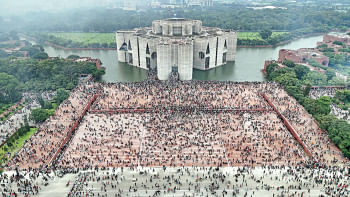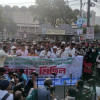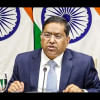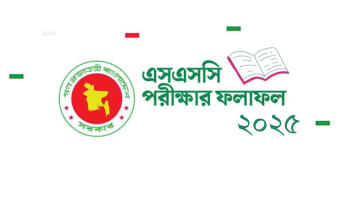Regime change in Bangladesh: The fallout for India

Vladimir Lenin, after all, was right. Sometimes, there are decades where nothing happens; and there are weeks where decades happen. Glory to the martyrs and vanguards of Bangladesh who made it to a possible democracy once more!
In Bangladesh, August is apparently a month when decades happen. Karl Marx famously said, "History repeats itself, first as tragedy, second as farce." If the fall of the BAKSAL (Bangladesh Krishak Sramik Awami League) regime in August 1975 was a tragedy, the boisterous exit of the regime this August is a repetition, this time as a farce. The free fall of the regime is a relief for many; however, there are also darker clouds around in the horizon.
The odds are no less apparent. One of these concerns India, the nation-state's largest neighbour. The facts around the number one superpower, the US, are another concern. But I can't deal with the second topic in this space. Let me rather stay with only India today.
To some, the events of July-August, for all their valour and glory may tell the same old story. But it is not exactly a void in which they disgorge.
The coup d'état of 1975 was organised clandestinely. It was a civilian-military combined effort. There is good evidence that it was sustained by a Western power. The current conjuncture seems to involve a broad coalition of radical forces led by university students, sustained by the support of a cross-section of civil society, political parties and the so-called international community. The fallout now is more uncertain than ever, at least compared to what it was a half century earlier.
The Awami League regime in 1975 under Sheikh Mujibur Rahman had gone berserk with its one nation one leader "mantra". In 2024, the daughter's regime only went wilder with its sheer ruthlessness. History repeated itself.
It is perhaps too early to say what awaits us even in the not-too-distant future. A doubt pops up, nevertheless. What is the nature of the August 5 revolution? Is it a popular revolution like the French Revolution flying the banner of equality, human dignity, and social justice? Or is it to prove a coup d'etat of sorts, an 18th Brumaire of civil society, midwifed by the "international community", tailored by the armed forces? How different is it going to be from the events of January 11, 2007, events welcomed by the country's biggest neighbour, India? We hardly learn from history. That seems to be the only takeaway from history's department stores.
One does not choose from an empty set. Not a neighbour, at any rate. Nations act, as everyone knows, not as philanthropists or cynics but in their own best interest. Did Bangladesh's inevitable neighbour follow even a rule of its own best interest in underscoring the dynastic autocracy in Bangladesh? Was that the best option it had had? Will it learn a lesson, in all candour, this turnaround? These are questions best left to political pundits in India and beyond.
For us, citizens and denizens of Bangladesh, it is more of a single-payer option. India's unabashed selfishness in promoting a regime that clearly violated all rules of liberal democracy proves highly short-sighted, more now than ever.
What alternatives did India have to choose from is not apparent, or not well-known in any case. But it may even be non-transparent. In 1975, India blatantly ignored its lower riparian neighbour in claiming the Ganga-Padma as a virtually all-India domestic watercourse. That it is an international river, it apparently forgot then. India's stance on other watercourses changed little since then. The waters of the Teesta and many other common international rivers don't flow quietly anymore.
Border killings on a rhythmic scale are not simply a mystic symbol of India's political muscle but of its myopic nature. It is a bizarre thing: "India's Bangladesh Problem," as one pundit called it. Termites, they call their unhandsome neighbours.
India's China obsession, at least ever since her war with China in 1962, could have misled it to its Bangladesh policy. But a people who didn't put up with Pakistan's proto-colonial repressive regime of two and a half decades can hardly be expected (let alone taken for granted) to welcome such a proverbial "subsidiary alliance" as India desires to perpetrate on Bangladesh.
The latest regime change in the wake of a popular mass uprising should provide an occasion to rethink future relations between the two sovereign neighbours in South Asia, adorned by the common historical legacy of many centuries.
The immiseration of one neighbour for the benefit of the other can only be sustained by such regimes as the just fallen one in Bangladesh. India is a habitat, nay a breeding ground, of proverbial wise men. I am sure they will not be deluded by dreams of "Akhand Hindustan". That simply will not work.
The regime change of August 2024 may also provide an occasion to reflect on the question of national identity, a question the think tanks of national security (or regional imperialism if you like) can only ignore at their own peril.
Let history not repeat a second tragedy. The regime change in Dhaka, apparently, will enjoy the blessings of the "international community". But it is unlikely to work well if India does not think today what forces of circumstances will force it to think tomorrow.
India's best interest may perhaps lie in strengthening a new democracy in Bangladesh. At any rate, not obstructing democratic aspirations of a new generation in its eastward neighbourhood is the key point.
Dr Salimullah Khan is professor of general education at the University of Liberal Arts.
We welcome your contributions and analysis of global events. To submit articles to our weekly page, Geopolitical Insights, please send an email to [email protected]
Follow The Daily Star Opinion on Facebook for the latest opinions, commentaries and analyses by experts and professionals. To contribute your article or letter to The Daily Star Opinion, see our guidelines for submission.

 For all latest news, follow The Daily Star's Google News channel.
For all latest news, follow The Daily Star's Google News channel. 









Comments